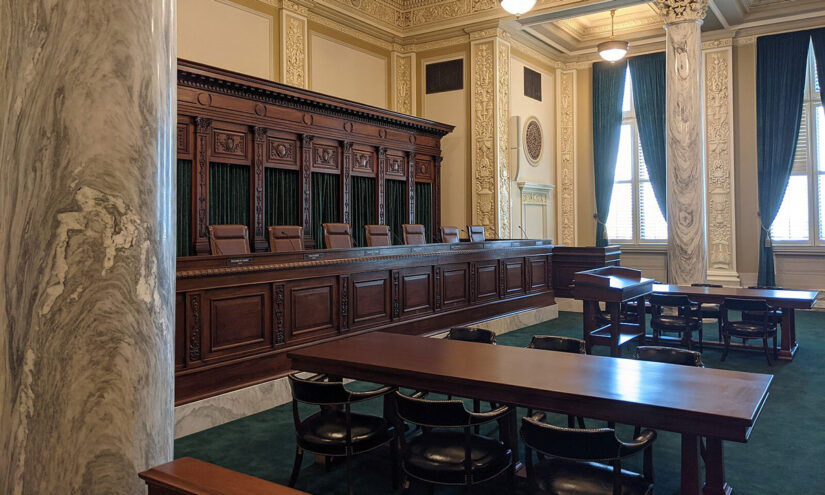Reflecting on the tenets that shape our educational practices is fundamental for …
Oklahoma Supreme Court Rejects Virtual Catholic Charter School Application
Emma Wordsmith

The Oklahoma Supreme Court declared unconstitutional a first-ever public Catholic school proposed for Oklahoma students, preventing the opening of the St. Isidore of Seville Virtual Charter School. The decision, delivered on Tuesday, thwarted the plans of the Catholic Archdiocese of Oklahoma to launch a virtual K-12 charter school named after the patron saint of the internet this August.
The St. Isidore of Seville Virtual Charter School, which was actively recruiting staff and enrolling students, was anticipating around $1.2 million in state funds set to be received next week. However, the state’s high court, in a closely watched 6-2 ruling, found the approval of the school by the Statewide Virtual Charter School Board last year to be in violation of both the Oklahoma and U.S. constitutions, as well as state law mandating nonsectarian public schools.
“Enforcing the St. Isidore Contract would create a slippery slope and what the framers warned against — the destruction of Oklahomans’ freedom to practice religion without fear of governmental intervention,” noted the justices in their ruling.
While the court instructed the board to retract its contract with St. Isidore, it is expected that the case will be appealed, potentially reaching the U.S. Supreme Court.
The Archdiocese expressed disappointment at the ruling, stating that it was heartbreaking for numerous prospective students and their families who had hoped to enroll at the school in August. The organization is evaluating its legal recourse but remains steadfast in its belief that St. Isidore could benefit students from diverse backgrounds.
The school has already garnered over 200 applications for admission.
Oklahoma Attorney General Gentner Drummond, who initiated the lawsuit last October to prevent the school’s opening, lauded the court’s decision as a significant triumph for religious liberty. The ruling ensures that Oklahomans will not be compelled to finance religious schools that contradict their faith.
The court’s verdict is a notable victory for proponents who argue that charter schools should not be religious institutions. The ruling upholds the principle of separation of church and state in public education.
Derek Black, a law professor at the University of South Carolina, hailed the ruling for clarifying the legal landscape regarding charter schools and religious institutions. He highlighted the court’s stance on preventing government involvement in religion.
The controversy surrounding the school comes amid broader efforts in Oklahoma to incorporate religious instruction within public schools. The state has passed legislation allowing students to engage in religious classes for elective credit, while facing opposition from groups like the Satanic Temple seeking to provide alternative religious education.
Oklahoma Governor Kevin Stitt expressed hope that the U.S. Supreme Court will review the case and uphold the right of St. Isidore to establish their school. The school, represented by the Religious Liberty Clinic at Notre Dame Law School, intends to challenge the ruling and continue advocating for educational choice and opportunity for all communities.
The outcome of the court ruling has significant implications for the future of religious and charter schools in Oklahoma, prompting intense dialogue around the intersection of faith, education, and state funding.



